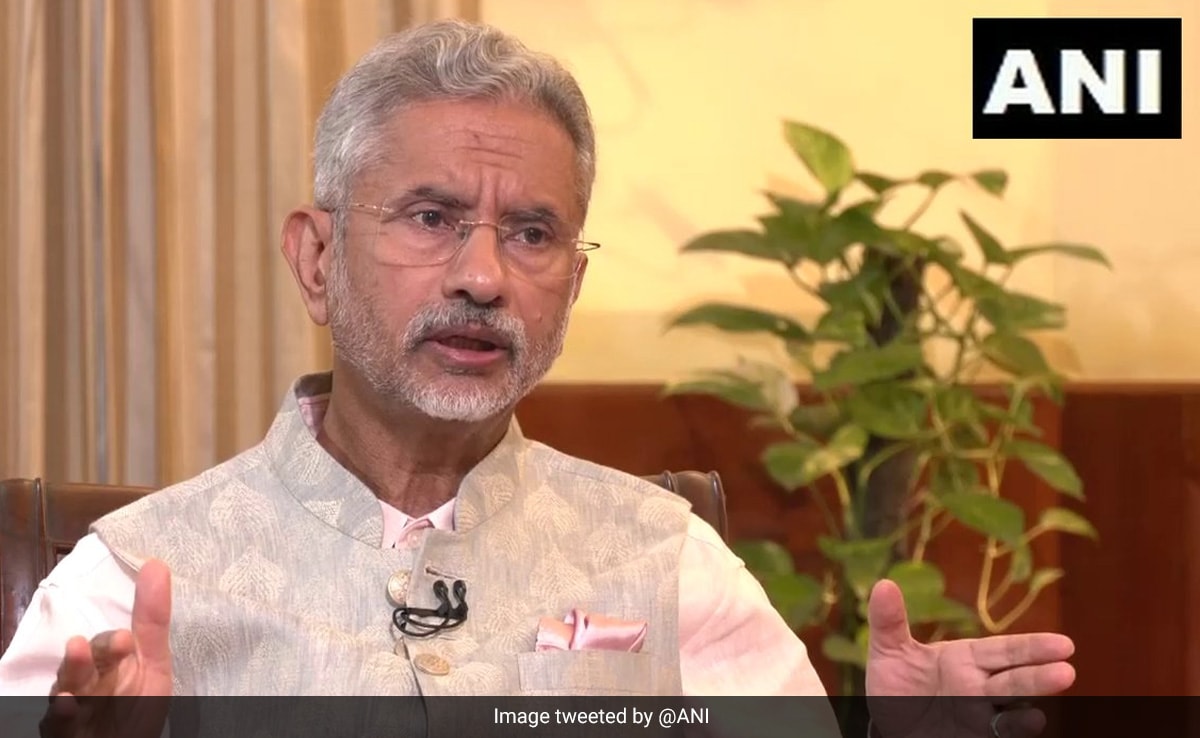
S Jaishankar was addressing students in Thiruvananthapuram (File)
Thiruvananthapuram:
External Affairs Minister S Jaishankar said that the resistance of the United Nations to reform its structure, will eventually lead to the body being “anachronistic” and people will start finding solutions outside.
The External Affairs Minister made the remarks in an address to students of the Indian Institute of Space Science and Technology in Thiruvananthapuram today.
Addressing the event, Dr Jaishankar gave an “injudicious” reference of passengers sitting in a bus drawing a comparison with the permanent members of the UN Security Council.
“I somewhere injudiciously…described it like a passenger in a bus. A person sitting on the seat, will not vacate it for the next person. So there are these five guys sitting. Sometimes, you see such passengers, you see someone is tired, someone is carrying a baby, they will not get up and give up that seat,” he said.
He further said that the pressure to change has grown over the years on the UN, and the message needs to be understood by the global body.
“There has to be pressure. Over the last few years, a large part of the world feels this is something that needs to be done. There are 54 countries in Africa, but they don’t have a single member. There is not a single Latin American member. The most populous country is not there, the fifth largest economy is not there,” Dr Jaishankar said.
He added, “So how long would you continue that? What happens if you do not reform, people will find solutions outside. This is a message that the UN has to understand. They will become anachronistic, and develop the danger of heading towards not extinction, but a little bit of irrelevance”.
Notably, reforms in the global systems have been an issue continuously raised by India and Prime Minister Narendra Modi on the global stage.
During his concluding address at the G20 Leaders Summit here in the national capital, PM Modi reiterated his stance of making global systems in accordance with the “realities of the present” and took the example of the United Nations Security Council.
“When the UN was established, the world at that time was completely different from today. At that time there were 51 founding members in the UN. Today the number of countries included in the UN is around 200. Despite this, the permanent members in UNSC are still the same,” he said.
The Prime Minister said that a lot has changed in the world since that time, be it transport, communication, health, or education, every sector has been transformed.
“These new realities should be reflected in our new global structure. It is a law of nature that individuals and organizations that fail to adapt to changing times inevitably lose their relevance. We must think with an open mind as to what is the reason that many regional forums have come into existence in the past years, and they are also proving to be effective,” he further said.
(Except for the headline, this story has not been edited by NDTV staff and is published from a syndicated feed.)




